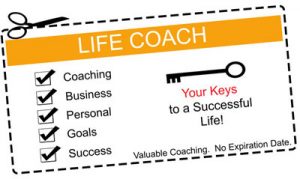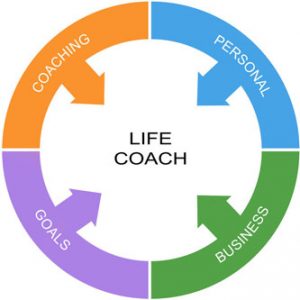If you’re considering a career in life coaching, then now may just be the perfect time to kick it off. Demand is growing rapidly in this previously little-known field and now might just be the best time to embark into it. There are plenty of great life coaching courses and resources available online that you can learn more about this career choice from.
So, why has visiting a life coach become increasingly common over the last few years?
Simply put, the hectic and busy lifestyles that many of us now live has lead to us seek out a life coach.
As our lives are becoming more and more hectic and complex, we may find ourselves needing that extra bit of advice or guidance to help us get by. It is difficult to decide what to prioritise when we find ourselves being pulled in so many different directions. Sometimes turning to a friend means that you don’t receive unbiased or objective advice. Visiting a life coach can help as they will ask you to define your goals and help you focus on creating a clear path to achieve them. If you’d like to be the one helping people achieve their focus, there are plenty of life coaching courses that you can look into online.
How many life coaches are really out there?
According to the International Coach Federation (a professional organisation of personal and business life coaches), there were only around 1500 life coach members in 1999. By the year 2013, this had risen to well over 17000 coaches across a total of 34 countries.
Many of the life coaches are focussed on specific life areas, as that helps them find clients with specific needs. For instance, you can find a life coach that focuses solely on dating, or health, or business, among other niches. If you are having trouble identifying a niche to focus on, explore the wide range of life coaching courses online to help narrow your focus.
What are the perks of being a life coach?
Being a life coach is probably one of the most rewarding jobs out there. What’s more, you can complete work on your own terms and essentially be your own boss. You will set your own fees and decide your own working hours. And best of all, you get to help people improve their lives!
How easy or difficult is it to become a life coach?
Becoming a life coach is not a particularly difficult task. There are no real barriers to entry or official qualifications/specific life coaching courses required. However, getting clients is not easy as you have to constantly be pitching and selling yourself. It can also be difficult to provide proof of your skills and evidence of success with past clients. How would a potential client really know whether you have successfully improved a past client’s life? It can be a difficult thing to measure.
The most important measure of success is how much you are helping people gain the strength to overcome their problems themselves. Even just getting them to identify their problems in the first place is an achievement. Gathering client testimonials is a great way of establishing credibility around your services.
Will official certification help?
Even though no official qualifications are required to become a life coach, certification can certainly help you gain clients. It gives you an air of credibility and professionalism that can make your clients feel more comfortable. Also, the growing demand for life coaches means that the field will get more and more competitive, and getting certified will help you stand out.
Other than credibility, you will find that you can gain a lot of valuable insight from life coaching courses. Even though becoming a great life coach is dependent on possessing a core interpersonal skill set, studying anything in depth can only help you improve your skills. Consider gaining that additional training even if you find that you have enough clients. You will only be able to use the knowledge to help serve them better, or using new methods that you hadn’t previously thought of.
Even if you have been in the profession for many years, additional training and development is always a useful thing to embark upon. Develop yourself with life coaching courses, so you can help your clients develop themselves better.
Life is all about balance. We all juggle work commitments with family, shoe horning in social engagements and events when we can, along with a healthy dose of rest and relaxation.
With such a fine balance achieved on a day to day basis, it doesn’t take much to upset the apple cart. Adding another important commitment can seem like sheer madness.
And yet we do it! And we invariably reach our goal, in some shape or form, and usually with success, but it can be tough.
So how do you balance work, life, family and a part-time course? How do you thrive in this challenging atmosphere and avoid being swamped by deadlines, goals and pressure?
Is there a secret to success, or is it a ‘take it every day as it comes’ approach that works best, battling problems and issues as they arise?
Firefighting or Strategy – Which is Best?
Living a busy and fulfilling life is just as much about having a plan as it is about dealing with problems. If you are one step behind all the time you will constantly feel like you are catching up, leaving you exhausted.
The solution then becomes ’something has to give.’ This often means ditching something you enjoy. Taking on another big commitment, such as home study courses, almost seems like a step too far.
So, how do you strike a balance between current commitments and home study? Here’s what our students told us worked for them.
- Have a plan… but be prepared to deviate
Home study courses will normally give you a rough guide to the number of hours expected to complete the course. Some qualifications will also go on to suggest a time frame, e.g. 360 hours over 12 months of study.
You can also set the time frame yourself. Hence, if you plan on completing the HLTA level 4 diploma, the expectation is that it will take you 240 hours. You will likely plan to complete the course within the 12-month time frame with tutor support. Divide 240 hours by 12 months and that gives you a monthly total of 20 hours, or roughly 5 hours of study a week.
Great! That’s doable, you think, and plough headlong into it. But then life happens.

Christmas creeps up, and then birthday events and holidays, alongside juggling childcare and extra commitments at work. Don’t forget, these 5 hours study a week are nominal – there may be some concepts of the home study course you fly through with ease, and others that take you a lot more time.
You need a plan. From what our students tell us, this is one of the best ways to get to grips with and commit to any home study course, no matter what level the qualification.
THE BALANCE – Be prepared to deviate. This means looking forward and understanding what commitments you have and when, and working around them. If you ‘give’ study hours to something, where can you recoup this time in future weeks?
- Stay organised
Another tip that our students give us is to get organised and – more importantly – stay organised!
There are many ways of doing this, including:
-
- Study calendars – Many of our students balance work, family and life with their home study courses. They tell us that having a study calendar for everyone in the family to see works well for them.There is no getting away from the fact that you will need to create dedicated study times for your course, and studying when it suits you is important. Some of our hardworking students are also parents, and they found that when they clearly posted their study times they could negotiate an hour or two of uninterrupted study time before they did something fun with their family.
-
- Study planners/diaries – Take a look online or visit your local stationers and for a few pounds, you will find that you can acquire a student or academic year planner diary. These diaries are created with students specifically in mind (and tutors and teachers too!), as they can help to organise your time into pockets to get certain tasks completed.For example, although we don’t impose deadlines, in order for you to complete your courses in your desired timeframe, YOU have to create your own deadlines so that you can reach key milestones in your course. These student planners can be excellent in helping you organise your study time from one month to the next.
-
- Online programs and apps – if you need some extra motivation, take a look online to see what digital platforms and apps can help you along. We are all so fond of our smart phones, so why not make better use of them?
THE BALANCE – Being organised means that you pay attention not just to your study but to other aspects of your life, too. Unfortunately, there will be times that your studies will take a back seat but equally, there will need to be times that you push your study obligations to the fore.
- Time to Play
Unfortunately, our sights can be so firmly set on reaching our goals that our vision becomes clouded. It is also true to say that becoming too consumed by working and studying means that we lose focus of the bigger picture.
You may think that studying for hours on end is productive, but research shows that long periods of time knee-deep in books and study can lower our productivity levels. Not only that, it can also diminish the quality of our work.
So, what’s the answer?
Our students tell us that factoring in time to relax and ‘switch off’ is a great way to make sure that productivity levels stay high and that the quality of the work stays high, too.Our students came up with all kinds of ideas:
- Study holidays – These suggestions ranged from a weekend away from ‘the books’ to allowing yourself a whole week of ‘free’ evenings where you did anything but study. Watch some films, read a novel, enjoy an evening walk, do anything but hit the books. BUT, many students also mentioned that when they did this, they have a detailed study plan for the following week so that they can get back into the swing of things.
- Know when it isn’t working – You may have set aside key times in your week to complete assignments or read through course material, but there are just times when this doesn’t work. It may be because you are tired, or there is a change of plans. Rather than ‘ploughing on regardless’, many of our students suggested writing that session off, returning to your studies at your next ‘study time slot’ and continuing on from that point. They found the hard way that ‘ploughing on regardless’ meant poor work that needed to be rewritten, thus time was wasted.
- Exercise – it is amazing the number of our students who said that when things were not going to plan and stress started to creep in, they took part in some kind of physical activity. This could be anything from going for a run or a walk, or playing an impromptu game with the children, to vacuuming the whole house!
THE BALANCE – time to kick back and relax is not just about your studying endeavours but about work and across life in general. Having a short break from your work helps your mind to re-focus on what needs to be done to not only reach the next milestone but reach it in the best way possible.
- Commit, but Be Kind to Yourself!
Finally, many of our students talked a lot about not just committing to home study courses, but also being kind to yourself.
On one hand, we realise that to get the promotion we have always wanted or to take our career paths to higher heights, you need to commit to getting the right qualifications. Students all over the world tell the same story. To get the job they want, they need the skills, and that means choosing and applying for a place on an accredited course.
It does take determination, commitment and a certain amount of tunnel vision to get the qualifications you want. It will mean switching off your favourite TV programme or swapping the latest bestseller for course materials. It will also mean sacrificing social time for an hour or two with your ‘head in the books’.
These challenges and opportunities are a part and parcel of reaching your goals, because just as your course will equip you with new skills, so will the process of studying.
But, there are times when we ‘weaken’. We do read the novel or watch the TV, and we don’t complete the work or tasks we set ourselves for that evening or that chunk of time.
This doesn’t mean you have to punish or berate yourself. If you had a vase of beautiful flowers and you noticed one wilting flower, you wouldn’t throw the whole bunch away, would you? You would remove that one flower and keep the rest to admire.
THE BALANCE – Your study is that vase of flowers. If you miss one session of your study calendar, don’t throw the rest of the week or your timetable away. Start your next session by picking up where you left off.
Enjoy your course and the opportunities it will bring during and after you successfully complete it!
Life coaching has just had the Hollywood touch with the upcoming film, ‘The Shack’.
Set for release in spring 2017, The Shack is the fictional story of Mack Philips.
After a family tragedy, Mack finds himself spiralling into depression and questioning his innermost beliefs. In this moment of crisis, he receives a letter, urging him to an abandoned shack, deep in the Oregon wilderness.
Laying aside his doubts, Mack finds the shack and three enigmatic characters, led by a woman named Papa. Through this meeting, Mack finds important truths that will transform the understanding of the tragedy and change his life forever.
It is the stuff of Hollywood but, for many people, the prospect of ‘changing their lives forever’ is a welcome one.
The description of the film picks out many salient points – crisis of faith, casting aside doubt, being open to new experiences, taking  chances and relying on others to guide you are all things that can be tough to do.
chances and relying on others to guide you are all things that can be tough to do.
Underpinning all of this is the issue of trust. Trusting yourself to have the strength to make changes and trusting those who say they can help, to do so. Is a life coaching course the one for you?
What is Life Coaching?
Life coaching is about the process of moving forward. Setting personal and professional goals is how you will gain the life that you want.
This doesn’t mean that, like the character of Matt in ‘The Shack’, that you are at rock bottom. Quite the contrary! You may be the happiest you have ever been and now feel that the time is right to make a few changes. Because, even though you are happy, healthy and successful, you may feel a little stuck.
Or, you may decide that now is the time to make a big change in life.
Life coaching is about change. Understanding what change or changes you want to make and why, and how you are going to get to the new place where you want to be.
Life coaching is NOT counselling, although there are similar elements. You set the goals, you identify what needs to change and you identify how this change needs to happen. If you are interested in counselling, there are plenty of counselling courses online that would be an excellent step for you to take.
Life coaching courses online give you an interesting insight, as well as the tools to be able to deal with these life changes.
You can also go on to become a life coach for someone else. In a professional capacity, you can be the sounding board they need to understand the changes happening in their life, as well as being in control of what is happening and when.
How to remap your life
Feeling a little lost? Not sure why or how you ended up where you are? Life coaching can and will help. Life coaching courses online examine the process in detail, but an overview of the process will look like this;
- Clarifying what you want – is it promotion or a career change? Is it a divorce or another personal change in your life? Only you can answer this question.
- Where are you right now? – reflect on your current position and consider how far from your ideal situation you are. There are tools that you can use to help with this process, such as the ‘Specific-Descriptive’ grid.

- Reviewing resources and options – you might want a complete change of career but do you have the financial backing to get through the process of giving up work? What resources do you have? What are all the options for you to consider?
- Create an action plan – what are you going to do and when? What will impact on the plan, such as hinder it or speed it up?
- Commit – and this is when the support of a trained life coach is invaluable. They can keep you motivated, help steer your determination and remind you why you are doing this when the going gets tough.
- Constantly review – when you drive a car, even down a straight road, you have your hands on the wheel, making small adjustments when needed. Reviewing your plan as you make the changes and head for your goals is essential.
- Celebrate successes – passed a course? Celebrate! Got a promotion? Celebrate! There are all kinds of successes – big and small – on your journey and you should celebrate each one.
Studying Life Coaching courses online will make a big difference to how you see yourself and the world around you. You will be able to objectively examine your place and role within it, as well as being able to make changes, if and when you need to.
It is also possible that with a life coach qualification under your belt, you can go on and make a difference to other people too by offering them your expertise. Could this be a new career?
